The Master would frequently assert that holiness was less a matter of what one did than of what one allowed to happen
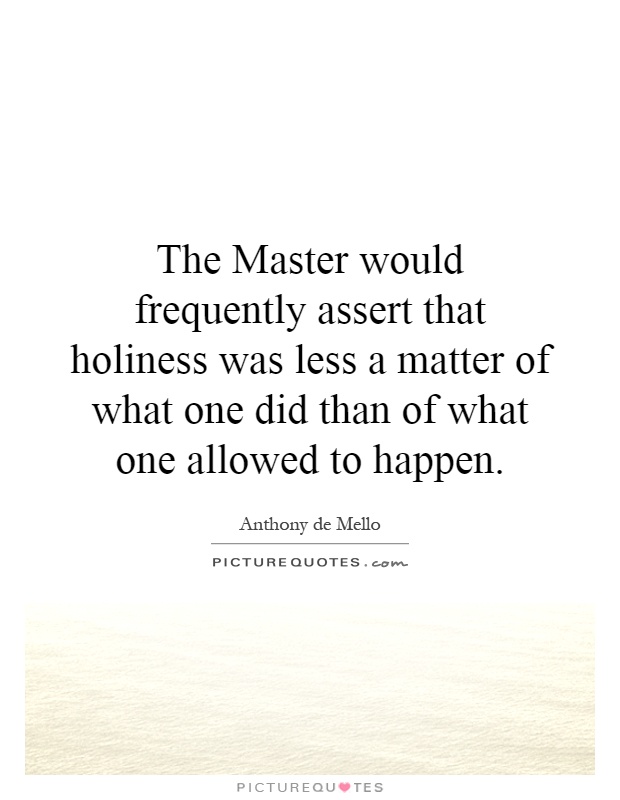
The Master would frequently assert that holiness was less a matter of what one did than of what one allowed to happen
Anthony de Mello, a Jesuit priest and spiritual teacher, often spoke about the concept of holiness in his teachings. He believed that true holiness was not about following a set of rules or performing certain actions, but rather about allowing oneself to be open to the divine presence and guidance in one's life. De Mello frequently asserted that holiness was less about what one did and more about what one allowed to happen.In de Mello's view, holiness was not something that could be achieved through external actions or rituals. Instead, it was a state of being that arose from a deep inner transformation and a willingness to surrender to the divine will. He believed that true holiness came from a place of inner peace, love, and acceptance, rather than from outward displays of piety or religious observance.
For de Mello, allowing holiness to happen meant letting go of ego, attachments, and preconceived notions about oneself and the world. It meant being open to the present moment and accepting whatever came one's way with grace and equanimity. This attitude of openness and surrender was, in de Mello's view, the key to experiencing true holiness in one's life.
De Mello's teachings on holiness were deeply rooted in the Ignatian tradition of spirituality, which emphasizes the importance of discernment, prayer, and self-reflection in cultivating a deeper relationship with God. He believed that true holiness was not about following a set of rules or doctrines, but about cultivating a deep sense of inner peace and connection with the divine.
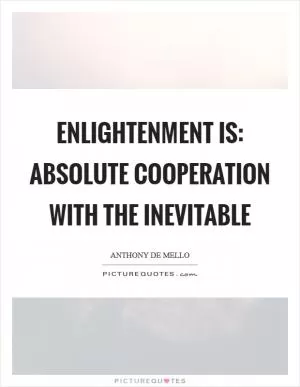
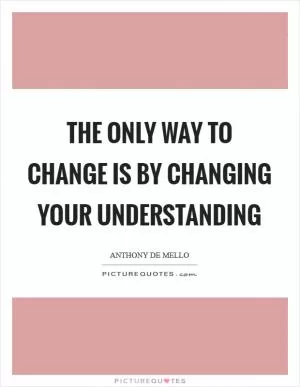





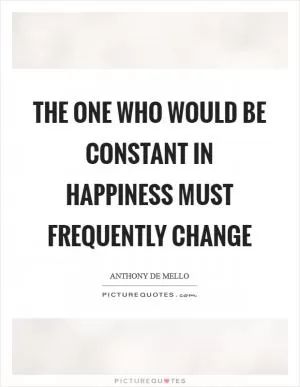

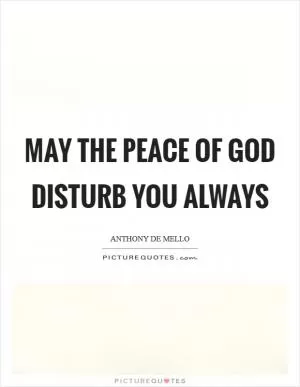
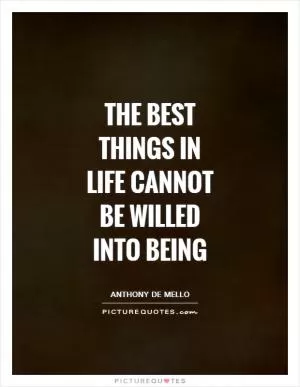

 Friendship Quotes
Friendship Quotes Love Quotes
Love Quotes Life Quotes
Life Quotes Funny Quotes
Funny Quotes Motivational Quotes
Motivational Quotes Inspirational Quotes
Inspirational Quotes